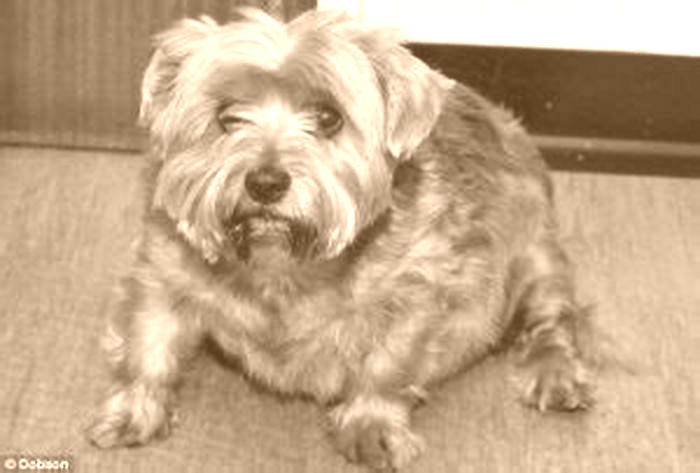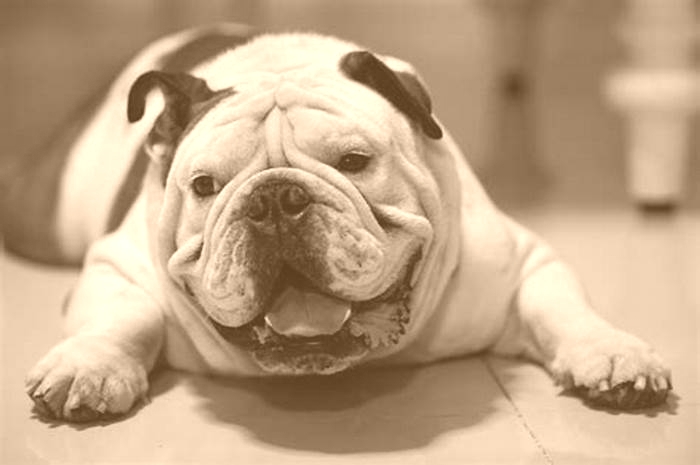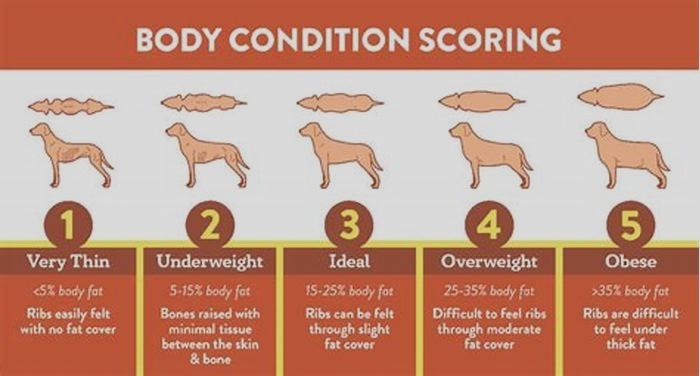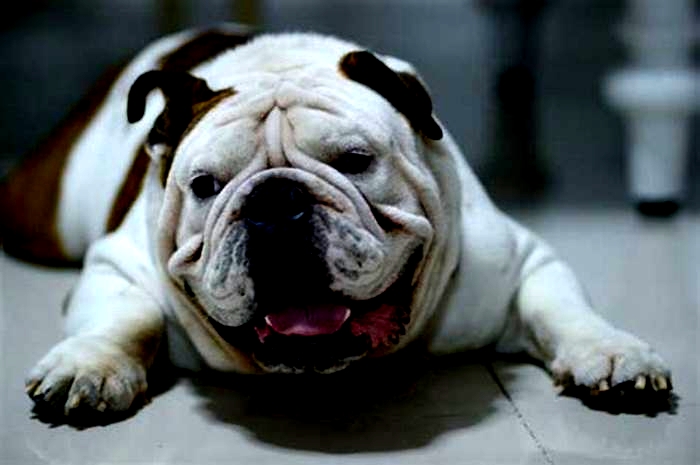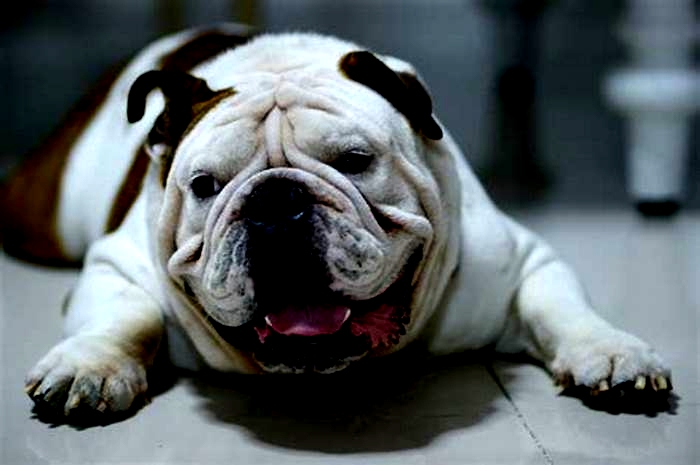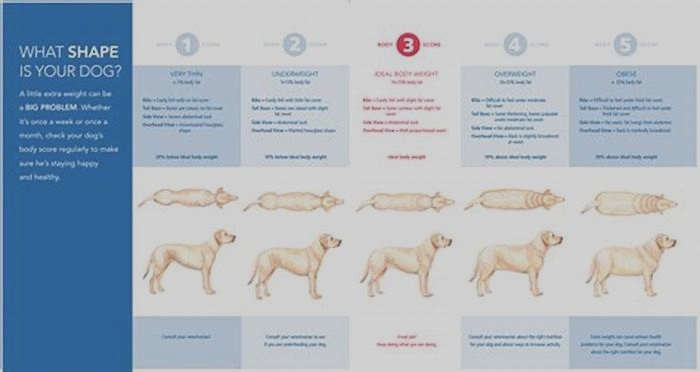Bulldog Obesity How to Modify Treats for Weight Management
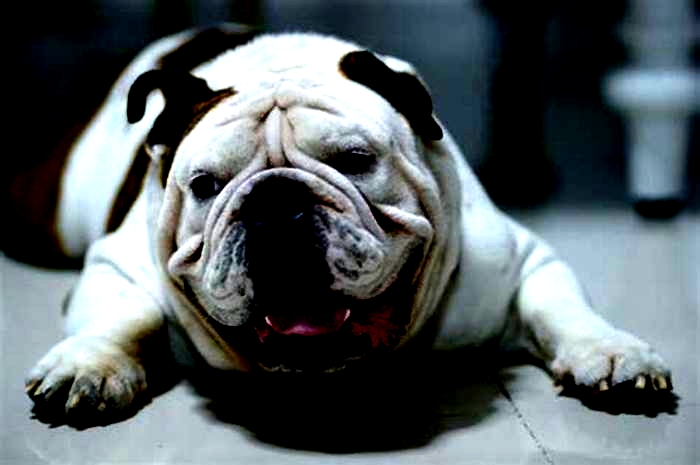
A Guide To A Healthy Weight For French Bulldogs
Male and Female French Bulldogs & Their Correct Weights
French Bulldogs, known for their adorable bat-like ears, wrinkled faces, and compact bodies, have gained immense popularity as companion dogs in recent years. These lovable canines come in different shapes and sizes, and understanding their correct weights is crucial for their overall health and well-being. In this article, we will delve into the topic of male and female French Bulldogs, exploring the factors that influence their weight and providing guidelines to help you ensure your furry friend maintains a healthy weight.

Understanding French Bulldog Weight Differences
When it comes to French Bulldogs, there are noticeable differences in weight between males and females. Generally, males tend to be slightly larger and heavier than females. However, it is essential to remember that each dog is unique, and variations may exist within the breed.
On average, adult male French Bulldogs typically weigh between 20 to 28 pounds (9 to 13 kilograms), while adult female French Bulldogs typically weigh between 16 to 24 pounds (7 to 11 kilograms). These weight ranges are considered healthy for the breed, but its important to monitor your individual dogs body condition and consult with a veterinarian to ensure they are maintaining an appropriate weight.
Factors Affecting French Bulldog Weight
Several factors influence the weight of male and female French Bulldogs:
**1. Genetics:** Genetics play a significant role in determining a French Bulldogs size and weight. A dogs lineage and the body structure of their parents can provide clues about the potential size of their offspring. Responsible breeders carefully consider these factors to produce puppies that meet breed standards.
**2. Age and Development:** The age and developmental stage of a French Bulldog affect their weight. Like all dogs, French Bulldogs go through growth spurts during their puppyhood. Its essential to provide them with a well-balanced diet and monitor their weight during this critical stage to ensure proper growth and development.
As they mature, French Bulldogs tend to reach their adult weight around 12 to 18 months of age. However, individual dogs may continue to fill out and gain muscle mass until they are around two years old.
**3. Diet and Nutrition:** Proper nutrition is vital for maintaining the ideal weight of both male and female French Bulldogs. Feeding them a high-quality, balanced diet specifically formulated for their breed can help prevent excessive weight gain and related health issues.
It is important to follow portion control guidelines provided by your veterinarian and adjust the amount of food based on age, activity level, and metabolism of your French Bulldog. Avoid overfeeding or giving too many treats, as this can lead to obesity, which can have detrimental effects on their overall health and quality of life.
**4. Exercise and Activity Level:** Regular exercise is crucial for maintaining a healthy weight in both male and female French Bulldogs. These lively, yet not overly energetic dogs, require daily physical activity to burn off excess energy and maintain muscle tone. Adequate exercise helps prevent weight gain and keeps them mentally stimulated.
Engaging in activities such as short walks, play sessions, and mental stimulation games can help keep your French Bulldog fit and prevent boredom, which may lead to destructive behaviors.
Tips for Maintaining a Healthy French Bulldog Weight
To help ensure your male or female French Bulldog maintains a healthy weight, consider the following tips:
1. **Consult with a Veterinarian**: Regular check-ups with a veterinarian are essential for monitoring your French Bulldogs weight and overall health. They can provide guidance on diet, exercise, and any necessary weight management plans.
2. **Feed a Balanced Diet**: Choose a high-quality dog food formulated for French Bulldogs that meets their nutritional needs. Avoid excessive calorie intake and opt for controlled portion sizes.
3. **Avoid Table Scraps**: While it may be tempting to share your food with your French Bulldog, its important to avoid feeding them table scraps. Human food can be high in calories, unhealthy fats, and harmful ingredients that can lead to weight gain and health issues.
4. **Provide Regular Exercise**: Engage your French Bulldog in daily exercise and play sessions. Tailor the intensity and duration of the activities based on their age, health, and energy levels.
5. **Monitor Body Condition**: Regularly assess your French Bulldogs body condition by gently feeling their rib cage. You should be able to feel their ribs without excess fat covering them. If you notice your dog becoming overweight or underweight, consult with your veterinarian for appropriate adjustments to their diet and exercise routine.
6. **Avoid Overfeeding**: Stick to the recommended portion sizes provided by your veterinarian. Overfeeding can lead to obesity and related health problems, such as joint issues, breathing difficulties, and a decreased lifespan.
7. **Provide Mental Stimulation**: In addition to physical exercise, mental stimulation is crucial for a well-rounded, healthy French Bulldog. Engage them in interactive toys, puzzle feeders, and training sessions to keep their minds active and prevent boredom.
By following these guidelines and paying attention to your French Bulldogs weight, you can help them maintain a healthy, happy life. Remember that each dog is unique, so its important to monitor their individual needs, consult with professionals when necessary, and provide the love and care they deserve.
*Note: This article is intended for informational purposes only and should not replace professional advice from a veterinarian. Consult with a qualified veterinarian for specific guidance regarding your French Bulldogs weight and overall health.*
French Bulldog Puppies:
French Bulldog puppies are known for their charming personalities and distinctive appearance. These adorable dogs are characterized by their bat-like ears, short snouts, and compact bodies. They make wonderful companions and are well-suited for apartment living due to their small size.

Expected Prices: The price of a French Bulldog puppy can vary widely based on several factors, including the breeders reputation, the puppys pedigree, and its coat color. On average, you can expect to pay anywhere from $2,000 to $4,000 for a French Bulldog puppy from a reputable breeder. Rare coat colors and exceptional pedigrees can drive prices even higher. Its crucial to research and choose a responsible breeder who prioritizes the health and well-being of their dogs.
Proper Care:Proper care is essential to ensure your French Bulldog puppy grows up healthy and happy:
- Nutrition: Provide a balanced and high-quality puppy food that meets their nutritional needs. French Bulldogs can be prone to obesity, so portion control is crucial.
- Exercise: While they dont require extensive exercise, regular short walks and playtime are important to keep them physically and mentally stimulated.
- Healthcare: Schedule regular vet check-ups, vaccinations, and preventive care. French Bulldogs are susceptible to certain health issues, such as hip dysplasia and respiratory problems due to their flat faces.
- Socialization: Early socialization is vital to help your puppy become well-adjusted and comfortable in various environments and around other dogs and people.
- Training: Begin obedience training early to teach basic commands and establish good behavior.
- Grooming: French Bulldogs have short coats, but regular grooming, including brushing and nail trimming, is necessary. Pay special attention to cleaning their facial folds to prevent skin issues.
- Safety: Due to their flat faces, French Bulldogs can be sensitive to heat and should be kept cool in hot weather. They are also not strong swimmers, so caution around water is essential.
French Bulldog Proper Puppy Diet:
French Bulldog puppies have different dietary needs compared to adults because they are growing and developing rapidly. Heres what to consider when feeding a French Bulldog puppy:
- High-Quality Puppy Food: Choose a high-quality commercial puppy food that is specifically formulated for small breeds. Look for labels that indicate complete and balanced nutrition for puppies.
- Protein: Ensure the puppy food contains a good balance of high-quality animal-based protein sources like chicken, turkey, or beef.
- Fat: Puppies need a moderate amount of healthy fats for energy and growth. Look for foods with adequate fat content.
- Carbohydrates: Opt for puppy foods with whole grains and carbohydrates like brown rice or sweet potatoes for sustained energy.
- No Fillers: Avoid foods with excessive fillers, artificial additives, and by-products.
- Feeding Schedule: Follow the recommended feeding guidelines on the puppy food label. Puppies usually require more frequent, smaller meals throughout the day.
French Bulldog Proper Adult Diet:
French Bulldogs mature into adults, their dietary needs change. Heres what to consider for an adult French Bulldogs diet:
- Maintain High-Quality Food: Continue to provide high-quality commercial dog food that is appropriate for their age and activity level.
- Protein: Ensure that the food has a good balance of protein, but avoid excessive protein levels, as French Bulldogs are prone to obesity.
- Healthy Fats: Maintain a moderate fat content to support their energy needs without causing weight gain.
- Carbohydrates: Carbohydrates like brown rice, sweet potatoes, and vegetables can be included for fiber and nutrients.
- Portion Control: French Bulldogs are prone to obesity, so be mindful of portion sizes and avoid overfeeding.
- Special Diets: If your dog has specific dietary requirements or allergies, consult with your veterinarian for suitable options.
- Fresh Water: Ensure your Frenchie has access to fresh water at all times.
General Tips:
- Avoid feeding your French Bulldog table scraps, as some human foods can be toxic to dogs.
- Be cautious with treats and limit them to prevent excessive calorie intake.
- Monitor your dogs weight and adjust their portion sizes as needed to maintain a healthy weight.
- Some French Bulldogs may benefit from a grain-free diet, but discuss this with your veterinarian, as grain-free diets have been associated with certain health concerns.
Male French Bulldog Weight Chart
| Age | Weight |
|---|---|
| 1 month | 4 7 lbs |
| 2 months | 9 12 lbs |
| 3 months | 10 14 lbs |
| 4 months | 12 16 lbs |
| 5 months | 15 20 lbs |
| 6 months | 17 22 lbs |
| 7 months | 18 25 lbs |
| 8 months | 19 27 lbs |
| 9 months | 20 28 lbs |
| 10 months | 20 28 lbs |
| 11 months | 20 28 lbs |
| 1 year | 20 28 lbs |
Female French Bulldog Weight Chart
| Age | Weight |
|---|---|
| 1 month | 3 6 lbs |
| 2 months | 7 10 lbs |
| 3 months | 8 -12 lbs |
| 4 months | 10 -15 lbs |
| 5 months | 11 -17 lbs |
| 6 months | 13 -20 lbs |
| 7 months | 14 -21 lbs |
| 8 months | 15 -22 lbs |
| 9 months | 16 -22 lbs |
| 10 months | 17 -24 lbs |
| 11 months | 17 -24 lbs |
| 1 year | 17 -24 lbs |
Mini French Bulldogs:
Often referred to as Miniature French Bulldogs or Mini Frenchies, are a smaller version of the standard French Bulldog breed. They share many of the same characteristics and traits as their larger counterparts but are bred to be more compact in size. Heres what you need to know about Mini French Bulldogs:
Size: Mini French Bulldogs are typically smaller than standard French Bulldogs. While there isnt an official size standard, they are often around 11 to 12 inches (28 to 31 cm) in height at the shoulder and can weigh between 16 to 28 pounds (7 to 13 kg).
Appearance: They have the same distinctive features as regular French Bulldogs, including a short snout, bat-like ears, and a compact, muscular body. Their coat can come in various colors, including brindle, fawn, white, and more.
Temperament: Mini French Bulldogs share the friendly and affectionate nature of standard French Bulldogs. They are known for being social, playful, and great companions. They are often well-suited to apartment living due to their smaller size.
Exercise: Mini French Bulldogs do not require extensive exercise and are content with short walks and playtime. However, its important to avoid overexertion, especially in hot weather, as their flat faces make them prone to overheating.
Health: While Mini French Bulldogs inherit many of the same health issues as standard French Bulldogs, such as respiratory problems due to their brachycephalic (flat-faced) structure, they may be at a slightly lower risk because of their smaller size. Nonetheless, its essential to choose a responsible breeder who prioritizes the health of their dogs to minimize the risk of genetic health problems.
Lifespan: The average lifespan of a Mini French Bulldog is around 10 to 12 years, which is similar to the standard French Bulldog.
Care: Mini French Bulldogs require the same care as their larger counterparts, including proper nutrition, regular vet check-ups, and attention to their grooming needs.
Training: Early socialization and obedience training are essential for Mini French Bulldogs to ensure they are well-behaved and comfortable around other dogs and people.
Ownership: Owning a Mini French Bulldog is a long-term commitment, and potential owners should be prepared for the responsibilities of caring for a dog, including providing love, attention, and proper healthcare.
Its important to note that the term Mini French Bulldog may not be officially recognized by breed standards, and their size can vary depending on the breeders practices. Always choose a reputable breeder who prioritizes the health and well-being of their dogs when considering adding a Mini French Bulldog to your family.
The Full Height For Male & Female French Bulldogs
The full height for male and female French Bulldogs typically ranges between 11 to 12 inches (28 to 31 cm) at the shoulder. French Bulldogs are a small breed, and their compact size is one of their distinguishing features. While there can be some slight variation in height among individual dogs, especially within the same breed, the range mentioned above is generally considered the standard for adult French Bulldogs.
French Bulldog Height Chart
| Age | Height |
|---|---|
| 3 months | 4 -6 inches |
| 6 months | 7 -9 inches |
| 9 months | 10 -11 inches |
| 1 year | 11 -13 inches |
When Do French Bulldogs Stop Growing ?
French Bulldogs typically reach their full height and stop growing in terms of height by the time they are around 9 to 12 months old. However, their overall development, including muscle and body weight, may continue to progress for a few more months after this point. While most of their growth occurs during the first year, its essential to continue monitoring their nutrition and exercise to ensure they maintain a healthy weight and muscle mass as they mature. Remember that individual dogs may have some variation in their growth patterns, so consult with your veterinarian for guidance on your specific French Bulldogs growth and development.
What should I do if my French bulldog starts to lose weight
Remember that individual dogs may have specific dietary needs, so its essential to consult with your veterinarian for personalized recommendations based on your French Bulldogs age, health, and activity level. Regular vet check-ups will also help ensure your Frenchies nutritional needs are being met.
If your French Bulldog is losing weight, its essential to address the issue promptly, as unexplained weight loss can be a sign of an underlying health problem. Here are steps to take if you notice your French Bulldog is losing weight:
- Consult Your Veterinarian: The first and most crucial step is to schedule an appointment with your veterinarian. They will conduct a thorough physical examination and may recommend blood tests, stool analysis, or other diagnostic procedures to determine the cause of the weight loss.
- Provide a Detailed History: Be prepared to provide your vet with a detailed history of your dogs recent behavior, eating habits, changes in appetite, and any other symptoms or changes in behavior youve observed.
- Nutritional Evaluation: Your veterinarian will assess your dogs current diet and may recommend changes in their feeding routine or the type of food theyre consuming. Its possible that a change in diet or feeding schedule may be needed to address the weight loss.
- Rule Out Medical Issues: Weight loss in French Bulldogs can be caused by various medical issues, including gastrointestinal problems, parasites, dental issues, diabetes, thyroid disorders, and more. Your vet will work to identify and treat any underlying medical conditions.
- Follow Your Vets Recommendations: Depending on the diagnosis, your vet will recommend a treatment plan. This may include medications, dietary changes, supplements, or other interventions.
- Monitor Your Dog: After starting the treatment plan, closely monitor your French Bulldogs progress. Keep track of their weight, appetite, and overall well-being. Inform your vet of any improvements or concerns.
- Ensure Proper Nutrition: Ensure that your dog is receiving a balanced and nutritious diet appropriate for their age and health condition. Follow your vets dietary recommendations.
- Regular Vet Check-ups: Continue to schedule regular vet check-ups to monitor your French Bulldogs weight and overall health. Preventive care is essential to catch and address any issues early.
- Maintain a Stress-Free Environment: Keep your dogs environment as stress-free as possible. Stress can sometimes contribute to weight loss or appetite changes.
- Consider a Second Opinion: If you are not satisfied with the diagnosis or treatment plan provided by your veterinarian, dont hesitate to seek a second opinion from another qualified veterinarian.
Remember that unexplained weight loss in dogs should not be ignored, as it can be indicative of a more serious underlying condition. Prompt veterinary care and a collaborative approach with your veterinarian are crucial to identifying the cause and providing the appropriate treatment to help your French Bulldog regain a healthy weight and overall well-being.
What should you consider if you have a overweight Frenchie?
If your French Bulldog is overweight, its essential to address the issue to ensure their health and well-being. Here are steps to help manage your overweight French Bulldog:
- Consult Your Veterinarian: Schedule a visit to your veterinarian to assess your dogs weight and overall health. Your vet will determine the ideal weight for your Frenchie and recommend a weight loss plan tailored to their specific needs.
- Dietary Changes: Follow your vets dietary recommendations. This may include switching to a weight management or low-calorie dog food. Be sure to measure your dogs food portions carefully and avoid free-feeding.
- Portion Control: Measure your dogs food portions according to your vets guidelines. Avoid giving excessive treats or table scraps, as these can contribute to weight gain.
- Regular Exercise: Increase your Frenchies daily exercise routine. Short, frequent walks and active playtime can help burn calories and improve their fitness. However, be cautious not to overexert them, especially in hot weather, as French Bulldogs are prone to overheating.
- Monitor Treats: Be mindful of treat intake. Choose low-calorie, healthy treats, or use small portions of their regular food as rewards during training.
- Avoid High-Calorie Foods: Keep your dog away from high-calorie or fatty human foods, as these can add unnecessary calories to their diet.
- Weight Management Food: Consider switng to a weight management or reduced-calorie dog food recommended by your vet. These foods are designed to help dogs lose weight while maintaining essential nutrients.
- Regular Vet Check-ups: Schedule regular follow-up appointments with your veterinarian to monitor your dogs progress and make any necessary adjustments to their weight loss plan.
- Consistency: Weight loss in dogs takes time, so be patient and consistent with their diet and exercise routine. It may take several months to achieve a healthy weight.
- Support and Patience: Provide your dog with emotional support and patience during their weight loss journey. Maintain a loving and positive environment to reduce stress, which can sometimes contribute to weight gain.
Remember that overweight dogs are at risk for various health issues, including joint problems, diabetes, and heart disease. Its crucial to work closely with your veterinarian to develop a safe and effective weight management plan tailored to your French Bulldogs specific needs.
French bulldog health issues Respiratory distress
French Bulldogs, like other brachycephalic breeds with flat faces and short noses, are prone to respiratory issues that can lead to respiratory distress. These issues are often related to their unique anatomy and can range from mild to severe. If you suspect your French Bulldog is experiencing respiratory distress, heres what you should do:
- Immediate Care:
- Stay Calm: Remain calm to help keep your dog calm as well.
- Check the Environment: Ensure your dog is in a well-ventilated area with access to fresh air.
- Avoid Heat: Avoid exposing your Frenchie to hot or humid conditions, as heat can exacerbate breathing difficulties.
- Contact Your Veterinarian:
- If your French Bulldog is experiencing severe or persistent respiratory distress, contact your veterinarian immediately or seek emergency veterinary care. Respiratory distress can be life-threatening, and prompt medical attention is crucial.
- Transport Safely:
- If you need to transport your dog to the veterinarian, do so carefully. Keep your car well-ventilated and avoid using a crate that restricts airflow.
- Provide Humidified Air:
- Adding moisture to the air can help alleviate breathing difficulties. You can use a humidifier or place your dog in a bathroom with a steamy shower running (while monitoring them closely) to increase humidity.
- Do Not Overexert:
- Avoid any strenuous exercise or play that could further strain their breathing.
- Elevate Their Head:
- Elevating your dogs head while they rest can sometimes help improve airflow. Use a small pillow or cushion to prop their head up slightly while they sleep.
- Avoid Stress:
- Keep your dog as stress-free as possible. Stress can exacerbate respiratory distress.
- Weight Management:
- Maintain a healthy weight for your French Bulldog. Obesity can worsen breathing difficulties.
Common respiratory issues in French Bulldogs include:
- Brachycephalic Obstructive Airway Syndrome (BOAS): This is a condition where the dogs airways are obstructed due to their short snout and palate. Surgical correction may be needed in severe cases.
- Heat Sensitivity: French Bulldogs are susceptible to overheating, which can lead to breathing difficulties. Keep them cool and avoid exercising them in hot weather.
- Allergies: Allergies can exacerbate respiratory issues. Identify and address any allergens in their environment.
- Infections: Upper respiratory infections can cause temporary breathing problems. Antibiotics or other medications may be necessary.
Remember that French Bulldogs with brachycephalic anatomy require special care, and you should work closely with your veterinarian to manage and prevent respiratory distress. Regular check-ups and a careful approach to their health and well-being are essential.
In conclusion
Understanding the correct weights for male and female French Bulldogs is crucial for their overall health and well-being. While there are general weight ranges for the breed, its essential to remember that each dog is unique, and variations may exist. Factors such as genetics, age, diet, and exercise play significant roles in determining a French Bulldogs weight.
To maintain a healthy weight for your French Bulldog, consult with a veterinarian, feed a balanced diet, avoid overfeeding and table scraps, provide regular exercise, and monitor their body condition. Following these guidelines will help ensure that your furry friend enjoys a happy and healthy life.
Remember that this article serves as informational guidance and should not replace professional advice from a veterinarian. Always consult with a qualified veterinarian for specific guidance regarding your French Bulldogs weight and overall health.
French Bulldog Height Chart
Please note that these are estimates and individual dogs may vary12.


